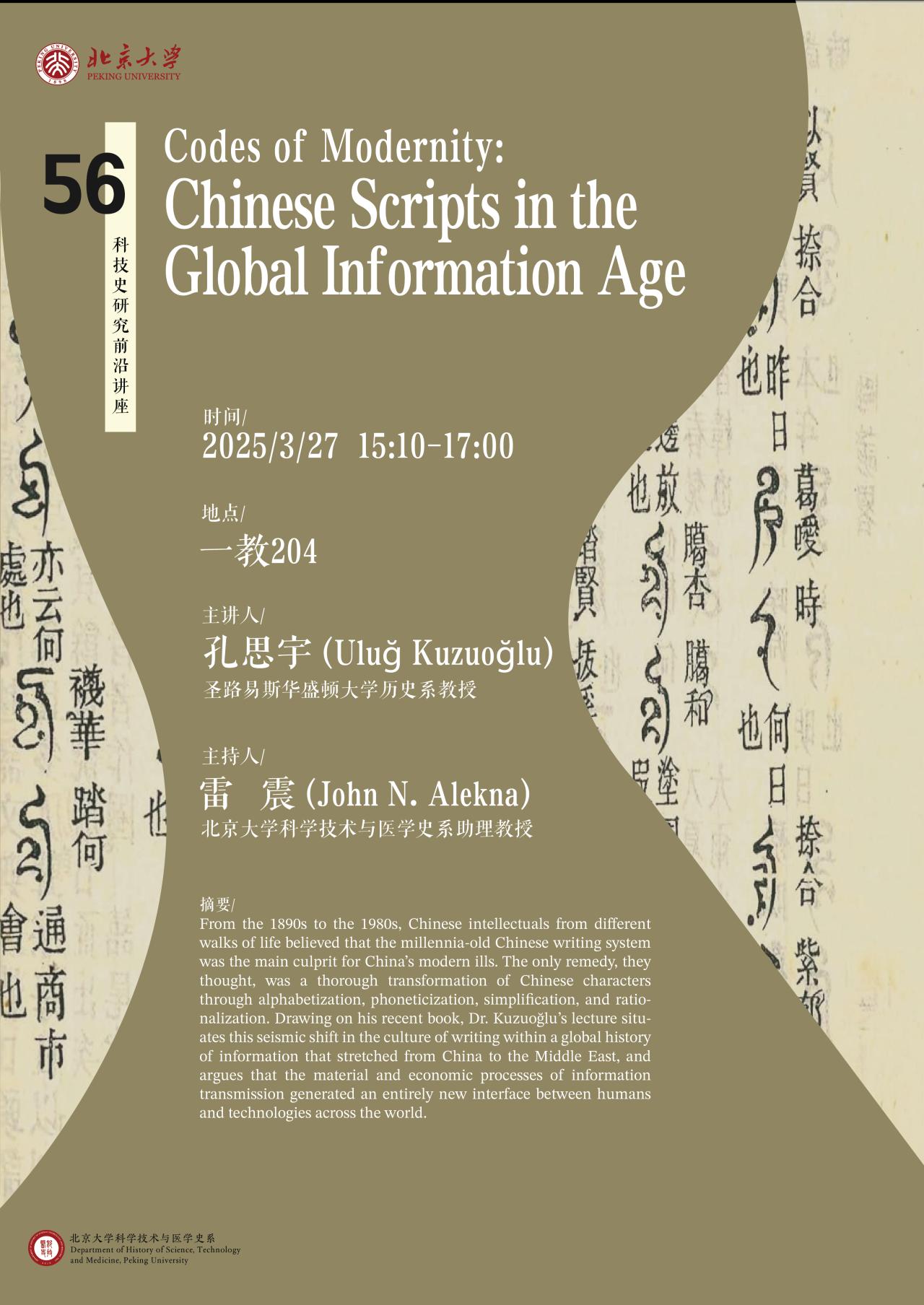
摘要
From the 1890s to the 1980s, Chinese intellectuals from different walks of life believed that the millennia-old Chinese writing system was the main culprit for China’s modern ills. The only remedy, they thought, was a thorough transformation of Chinese characters through alphabetization, phoneticization, simplification, and rationalization. Drawing on his recent book, Dr. Kuzuoğlu’s lecture situates this seismic shift in the culture of writing within a global history of information that stretched from China to the Middle East, and argues that the material and economic processes of information transmission generated an entirely new interface between humans and technologies across the world.
主讲人

Dr. Kuzuoğlu is an assistant professor of history at Washington University in St. Louis. He works at the intersection of science and technology studies and media studies to explore the social and political history of information technologies in China and the world. His first monograph, Codes of Modernity: Chinese Scripts in the Global Information Age (New York: Columbia University Press, 2023), examines the political economy of information in China through a history of Chinese script reforms––the effort to alphabetize and simplify the writing system––from the 1890s to the 1980s.

